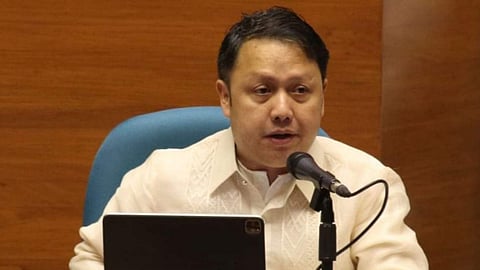
- NEWS
- the EDIT
- COMMENTARY
- BUSINESS
- LIFE
- SHOW
- ACTION
- GLOBAL GOALS
- SNAPS
- DYARYO TIRADA
- MORE

The House of Representatives has earmarked P292.23 billion in the proposed national budget for 2025 to boost social services, strengthen social safety nets, and ensure food security.
House Appropriations Committee Chair Elizaldy Co stated that the funding package was allocated to address the pressing needs of vulnerable sectors, including financially challenged students, farmers, fisherfolk, soldiers, indigent families, and those who barely meet the poverty threshold.
This funding is in addition to the P591.8 billion previously set aside by the Department of Budget and Management (DBM) for cash assistance to impoverished families.
Among the key enhancements in the 2025 General Appropriations Bill is an extra P39.8 billion for the Assistance to Individuals in Crisis Situations (AICS), designed to offer immediate support to those facing financial hardships.
The House also earmarked another P39.8 billion for cash assistance under the Ayuda para sa Kapos ang Kita Program (AKAP), targeting individuals who earn P21,000 or less per month.
This amount is three times larger than its current allocation of P13 billion.
AKAP is designed for the “near poor” or "lower middle class" segment of the population, including minimum wage earners who are vulnerable to economic shocks such as the sudden death of a household head, illness, job loss, or runaway inflation that can easily push them back into poverty.
At least P3.4 billion was also set aside for the Sustainable Livelihood Program for low-income families in a bid to “break the cycle of poverty.”
These programs are all under the Department of Social Welfare and Development.
DOLE’s TUPAD
The Department of Labor and Employment will also receive an additional P20.28 billion for the Tulong Panghanapbuhay sa Ating Disadvantaged/Displaced Workers (TUPAD) and the Government Internship Program.
According to the panel's senior vice chair, Marikina Rep. Stella Quimbo, the government must maintain standby funds to assist those who have crossed the poverty threshold “to prevent them from falling back into poverty due to economic challenges.”
Meanwhile, to support education, P30.01 billion was allocated for the sector to finance scholarships for underprivileged students pursuing tertiary education.
The amount will be split evenly between the Commission on Higher Education’s Tertiary Education Subsidy and Tulong Dunong programs.
The Department of Education will likewise receive an additional P7 billion budget for the construction of new school facilities and the repair of existing ones, especially those in underserved areas.
Additionally, the Armed Forces of the Philippines (AFP) will be allotted **₱**8.44 billion in additional funding to increase the subsistence allowances of military personnel. Once approved, the daily subsistence of soldiers will increase to P250, representing a 67 percent hike from previous levels.
The AFP will also receive an additional P3.2 billion to complete the airport expansion on Pag-asa Island, along with a sheltered port in Lawak, Palawan.
This funding augmentation supports intensified efforts to defend the West Philippine Sea amid the continuing incursions of Chinese militias against Philippine vessels.
In a bid to enhance food security, the panel realigned P30 billion for the Department of Agriculture's Philippine Irrigation Network Piping System, solar-powered irrigation systems, and cold storage projects.
"Food security is a priority for our nation, and these investments will help ensure that our farmers can thrive," Co stated.
Additionally, P44 billion has been added to the National Irrigation Administration's budget for establishing pump irrigation and solar-driven pump irrigation projects.
The Department of Health is set to receive an additional P56.87 billion aimed at enhancing its Health Facility Enhancement Program, Medical Assistance for Indigent and Financially Incapacitated Patients Program, and improving specialty and legacy hospitals.
A P1 billion budget has been earmarked for upgrading the University of the Philippines-Philippine General Hospital, a crucial facility in the country's healthcare system.
